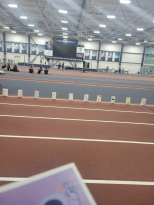The Road to Recovery
Without hands, normal life is seemingly impossible. Buttoning a shirt in the morning, opening the door to the bathroom, and cooking eggs are the kinds of simple tasks that Christopher Cardelli struggles with every single day.
During his sophomore year, Cardelli was sleep-deprived and was overwhelmed with stress trying to complete his final project in his architecture class. He was experiencing charette week, the final seven days before several architecture professors would critique his project. He had to prepare a physical model of an athletic facility he designed from scratch. In addition, Cardelli also had to design the same three-dimensional model on his computer with meticulous detail. He had to create the entire building down to the very screws that would hold the structure together, the specific insulation to maintain the building’s temperature, and the electrical circuitry of the lighting network.
All of this stress would take a major toll on his body’s immune system that would result in him suffering from a disease that had lain dormant in his spinal cord, waiting to be triggered. Cardelli woke up the next morning paralyzed from transverse myelitis, a disease that doctors are still struggling to understand.
After nearly two weeks in Hershey Medical Center, Cardelli was able to walk again and his motor functions were returning to normal. Except for his hands.
It has now been about 15 months since Cardelli woke up that morning and he is still attending physical therapy to strengthen his hands and work on the coordination of his fingers.
Although he still struggles with simple activities, Cardelli has adapted to a new lifestyle. He must use special tools and devices in order to write a paper or squeeze the toothpaste onto his toothbrush.
Cardelli was and still is an architecture major. When he was rushed to the hospital, he had to defer several of his classes. Since that time, he has completed his projects, passed the classes, and is excelling in his current classes.
Christopher Cardelli has always been an optimist and hasn’t let this tragedy change that aspect about him. Although he is upset this happened to him, Cardelli considers himself fortunate that he is able to figure out how to do tasks he didn’t think he would be able to do again.








